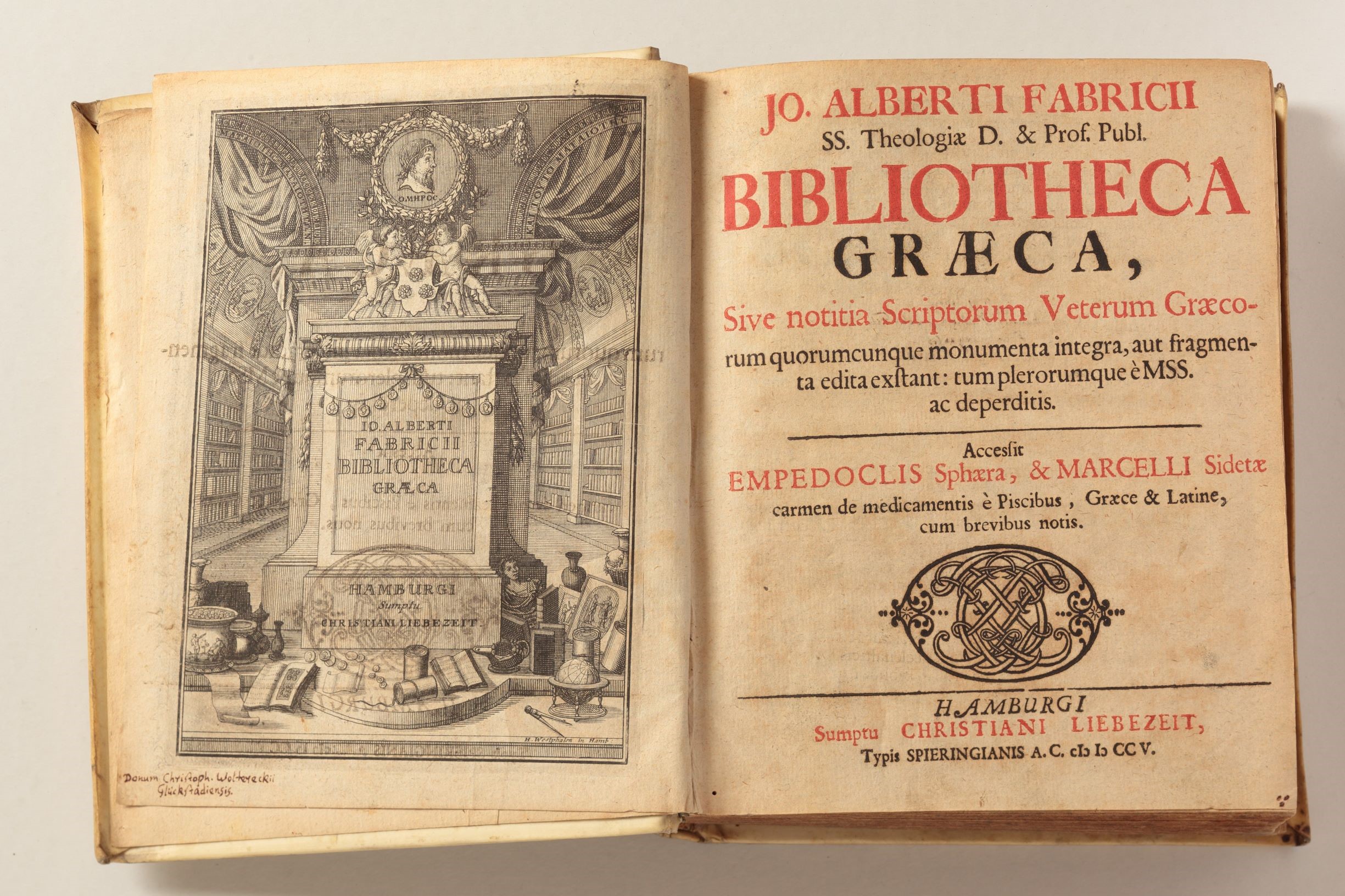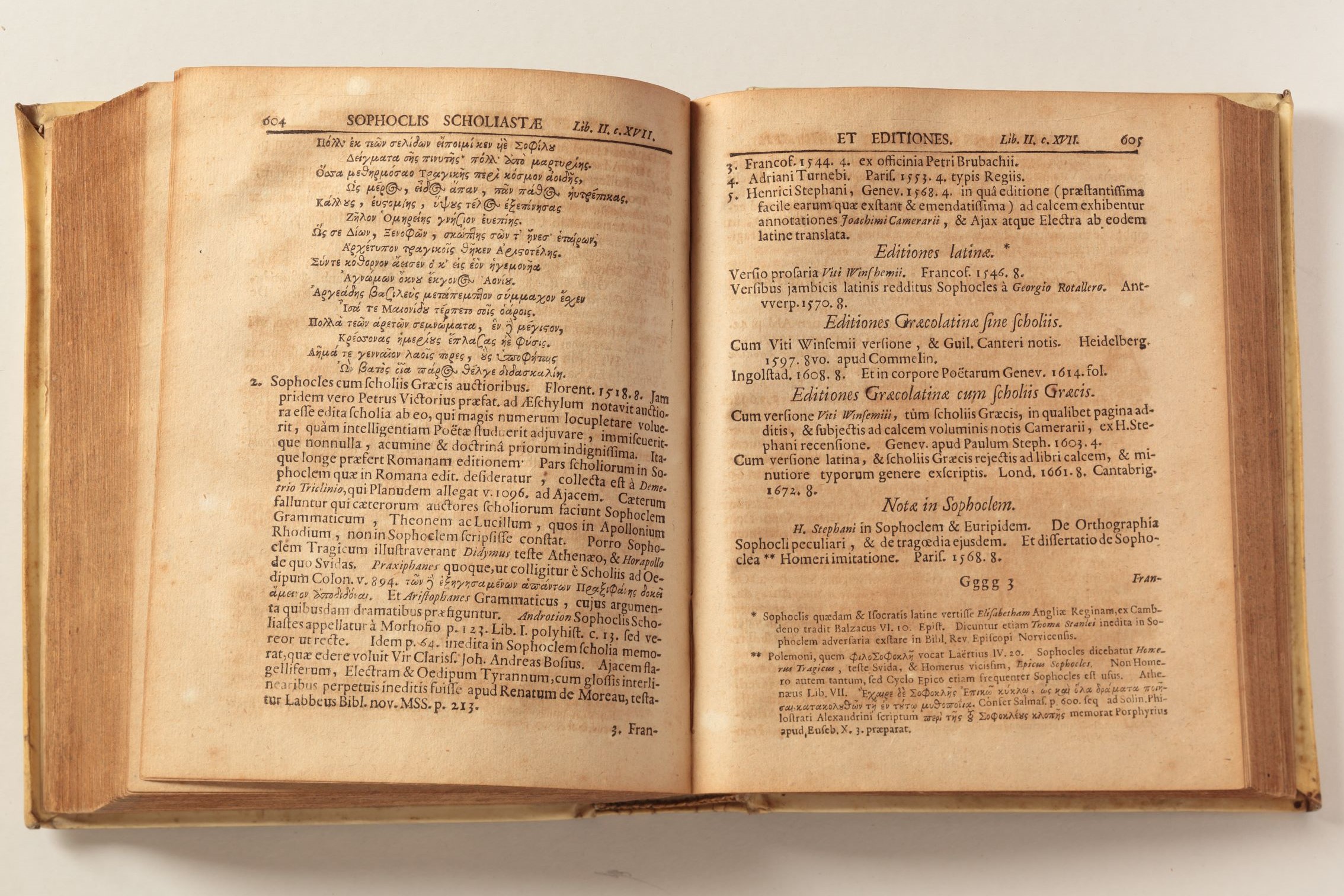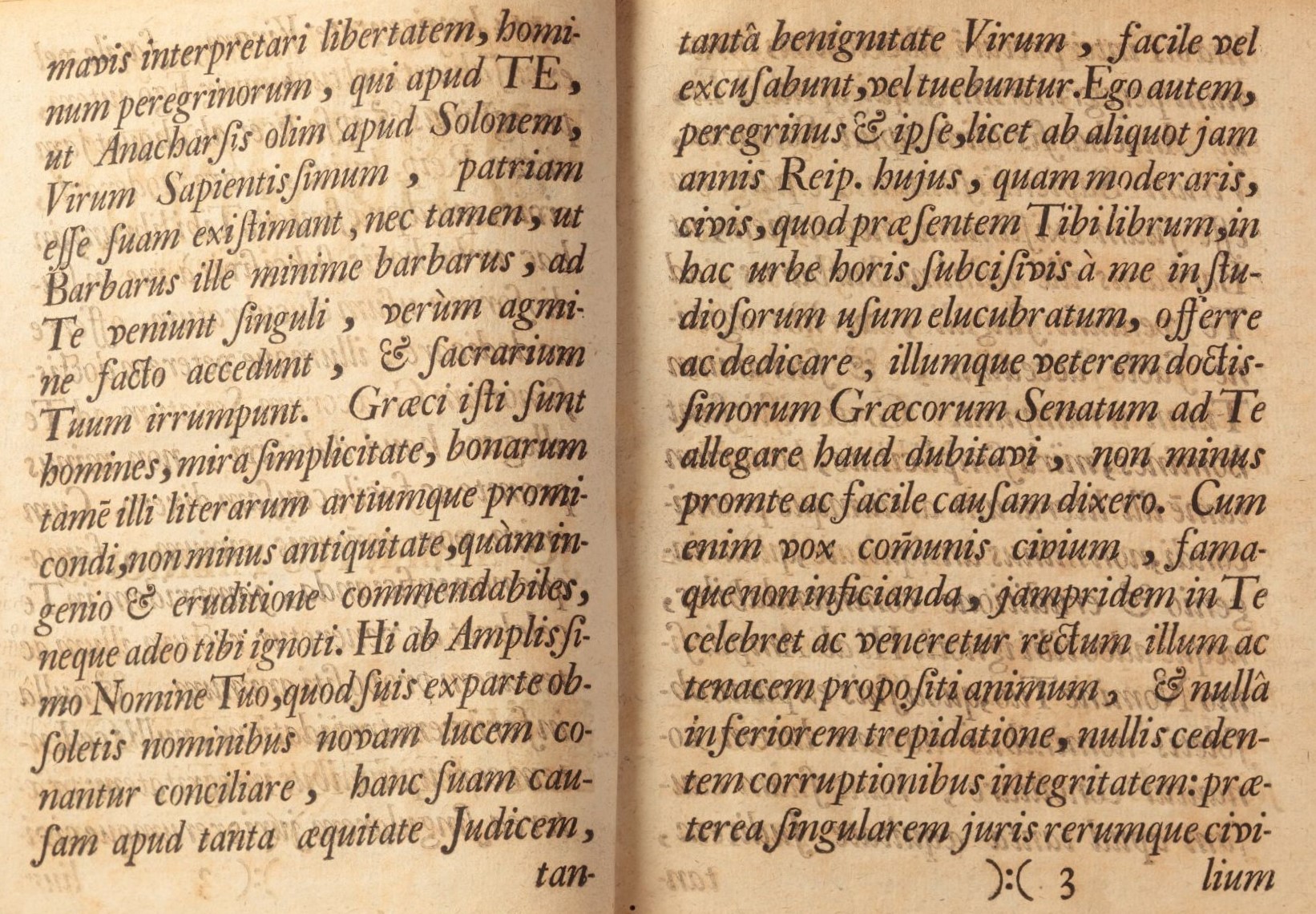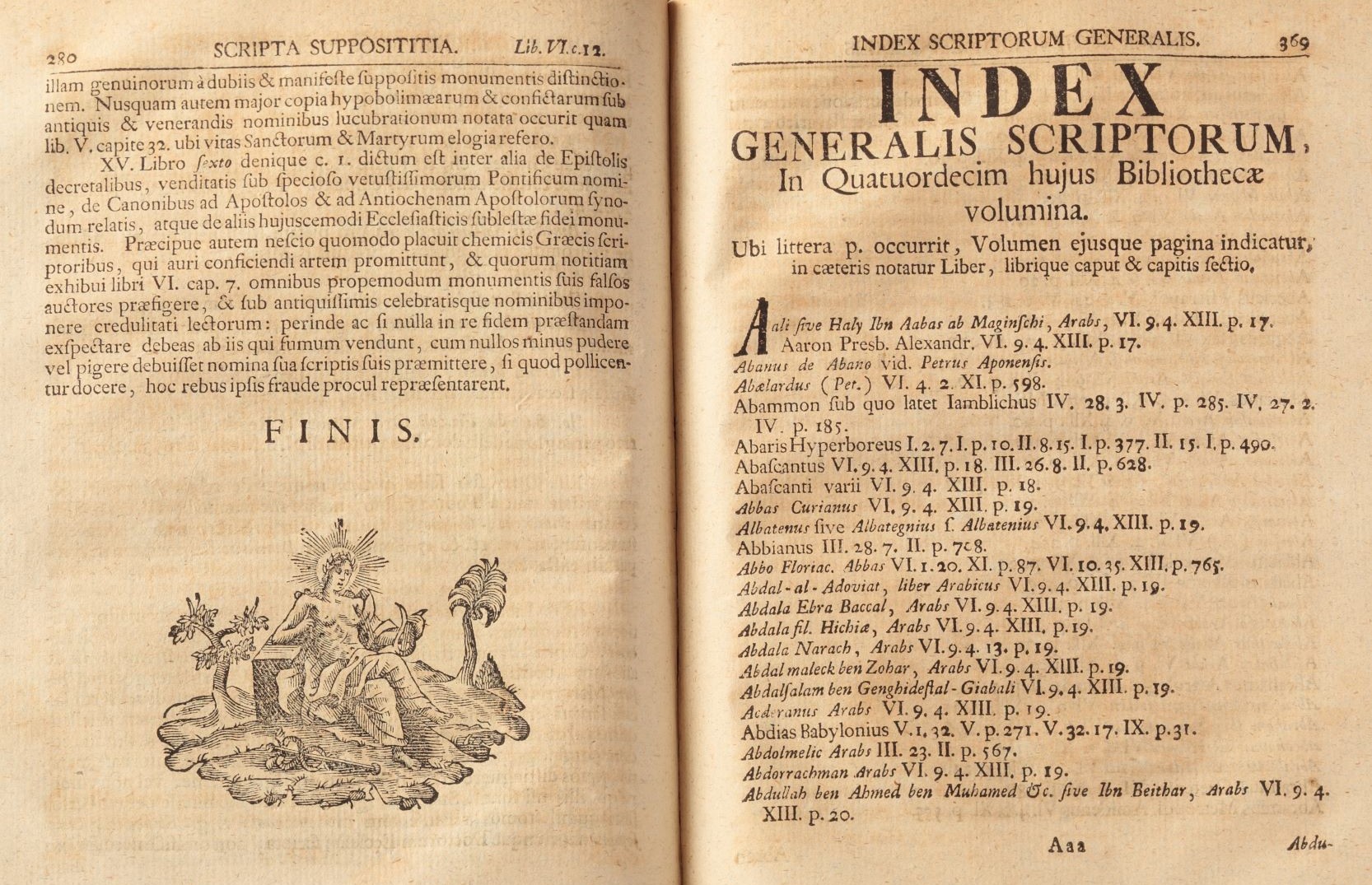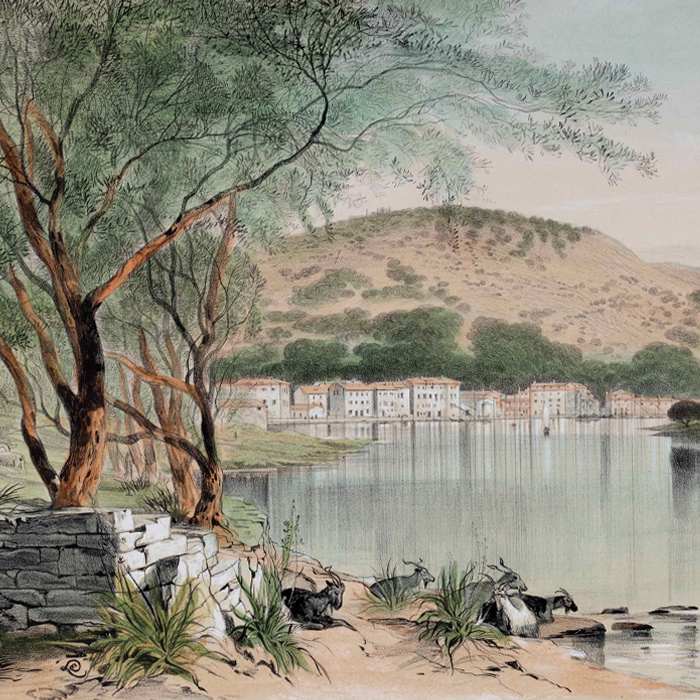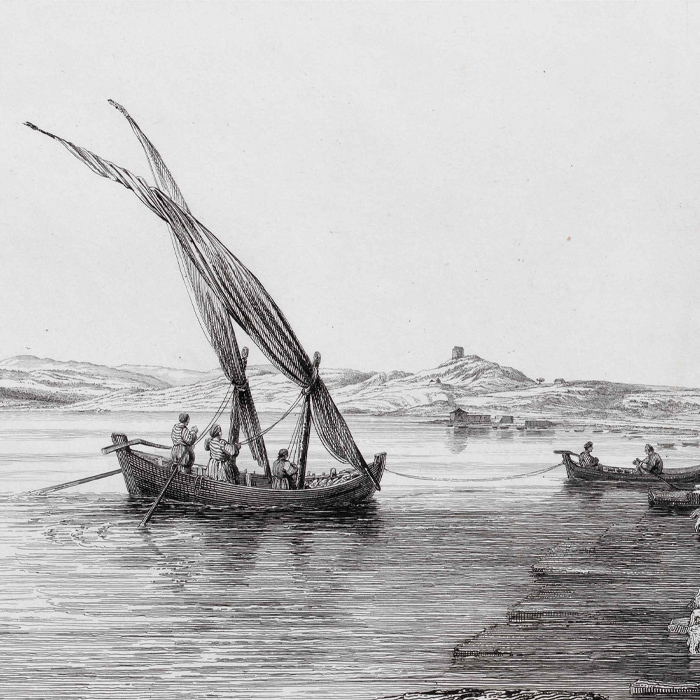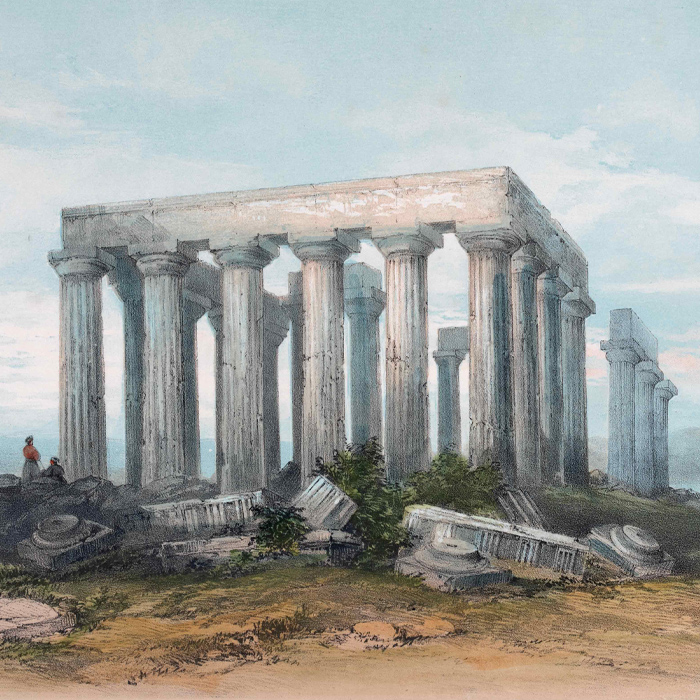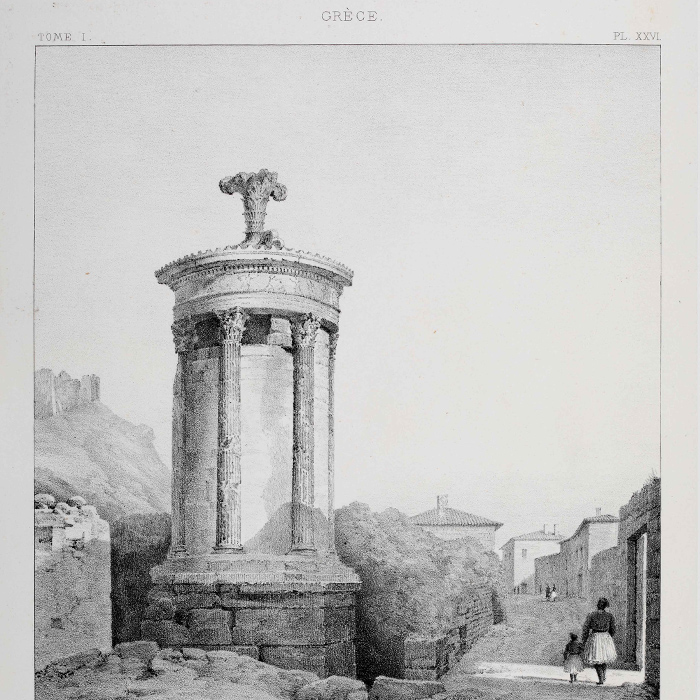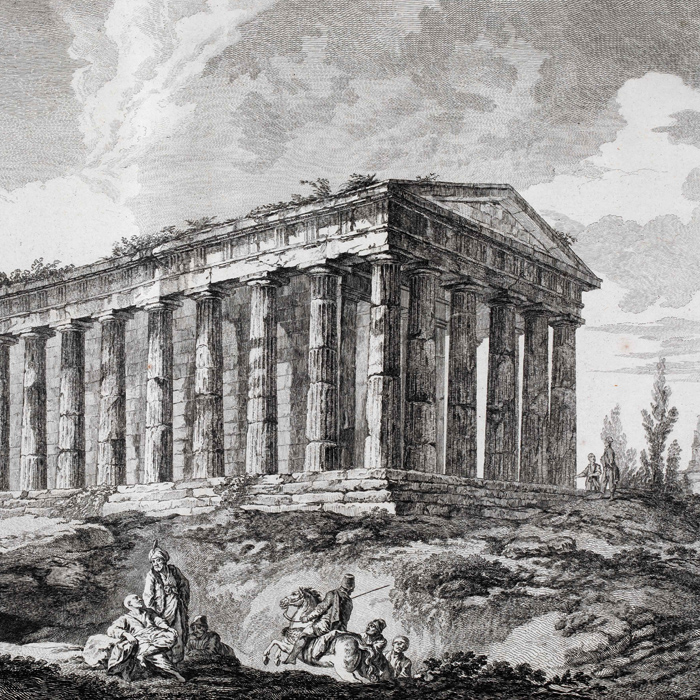Bibliotheca Graeca
Bibliotheca Graeca is considered among the most important opuses on the knowledge of antiquity published in the West in the 18th century. The author, Johann Albert Fabricius (1668-1736), was a highly regarded bibliographer of his time. The book is said to be a treasure trove for understanding ancient literature.
External appearance and importance
Bibliotheca Graeca, sive notitia scriptorum veterum graecorum (Greek Library or Information on Ancient Greek Writers) is 16 cm (width) x 20 cm (height). It is in fine condition.
This is one of the most important books on the knowledge of antiquity published in the Western World during the 18th century. It is part of the general approach of the German world towards ancient Greek literature. It was revised by G.C. Harles (1790-1812).
A brilliant study of Ancient Greek
Bibliotheca Graeca is said to be a treasure trove for understanding ancient literature. It covers the period from the pre-Homeric poems to 1453.
It includes references to Homer, Plato, Jesus, Constantine the Great and the fall of Constantinople. One chapter is dedicated to the canon, the nomology and medicine.
Each volume includes works that were published for the 1st time, such as Ars Grammatica by Dionysius Thrax (The Art of Grammar), the biography of Plotinus by Porphyry and Libanius’ orations.
The work of a notable bibliographer
German Johann Albert Fabricius (1668-1736) was a classical scholar and one of the most prominent bibliographers of the 18th century.
He graduated from Leipzig University in 1689, with a degree in Philosophy. In 1694 he became the librarian of theologist J.F. Mayer in Hamburg, and from 1699 until his death he was a Professor of Rhetoric and Ethics.
He wrote 128 books in total. The most important ones were:
- Biblioteca Latina (1697) – It includes classical Latin authors, from Plautus to Jordanes, and some early Christian texts.
- Bibliotheca Antiquaria (1713) – It delves into texts on Hebrew, classical and Christian antiquities.
- Centifolium Lutheranum (1728–30) – An account of 200 writers on the Reformation.
- Bibliotheca Latina mediae et infimae aetatis (1734–36) – A volume supplementary to Bibliotheca Latina and the foundation for a new method of studying medieval Latin.
The Alpha Bank Rare Book Collection is not open to the public.
However, you may visit the other collections of the Alpha Bank Library.
